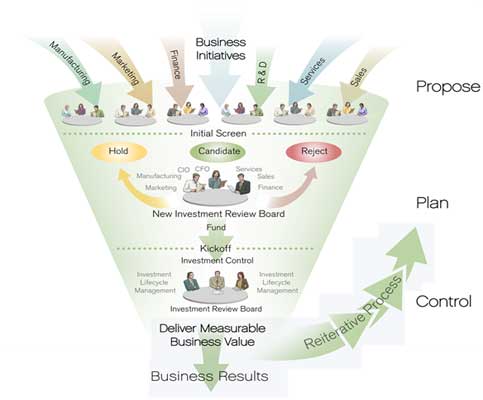Business initiatives can play every role provided they are properly implemented. The implementation process involves some treacherous elements to surmount. Particular change initiatives often fail than any other business ideas. However, with some proactive management and closely looking at the most common reasons you can avoid this kind of situation.
Establishing Cause & Effect Relationship
Organizational changes usually have widespread affects on everyone working in a company. Usually the person or team responsible for bringing the change assumes that everyone else involved will automatically understand the why. The way to moving forward is to create a vision which is easily understandable by everyone else involved. The initiative can be as simple as introducing a new layer of management or using Primavera P6 for every new project assigned.
People usually respond to change in a positive or negative manner. If the management makes them understand the positive differences, they will certainly respond in a more acceptable manner. Another way is to bring up some numbers like increase in a productivity figure or revenue or something which will improve due to the new business initiative.
Continuous Mentoring
One of the biggest problems with change is that the person or team responsible for bringing up new initiative becomes busy with someone else. The company must assign some permanent leader or mentor who continuously oversees the change along with the transition. This person will keep pushing the business initiative forward and remain a positive influencer even when everyone else has started losing interest. The change leader is the one who will brave through all corporate storms to ensure the transition not only takes place but is a permanent one.
Cultural Diversity & Business Initiatives
Organizational cultures have always been key drivers behind success or failure of business initiatives. The change flows from top to the bottom with a willing and accepting attitude. Companies with open or networked culture usually resist change. The best way forward in that case is to rely on structured methodologies to ensure the newly introduced business initiatives have been fully accepted and implemented across the board. However, the process of implementation should be flexible enough to accommodate the culture fit of the organization. However, if things do not work out, then the organization needs to change its culture becoming a more welcoming one towards new initiatives.
Defining Success
Organizations need to understand the difference between process implementation and real success accomplished. Installing a new project management system in the company is not success but it will be counted as success when it will deliver, help cut costs and ensure achieving of anticipated results. The act of switching from one system to another is not a success. Often top management makes this mistake of shutting down a change process once they have shifted to something new without realizing the actual benefits. Stick to the switching and ensure you achieve success before shutting down the entire process.




